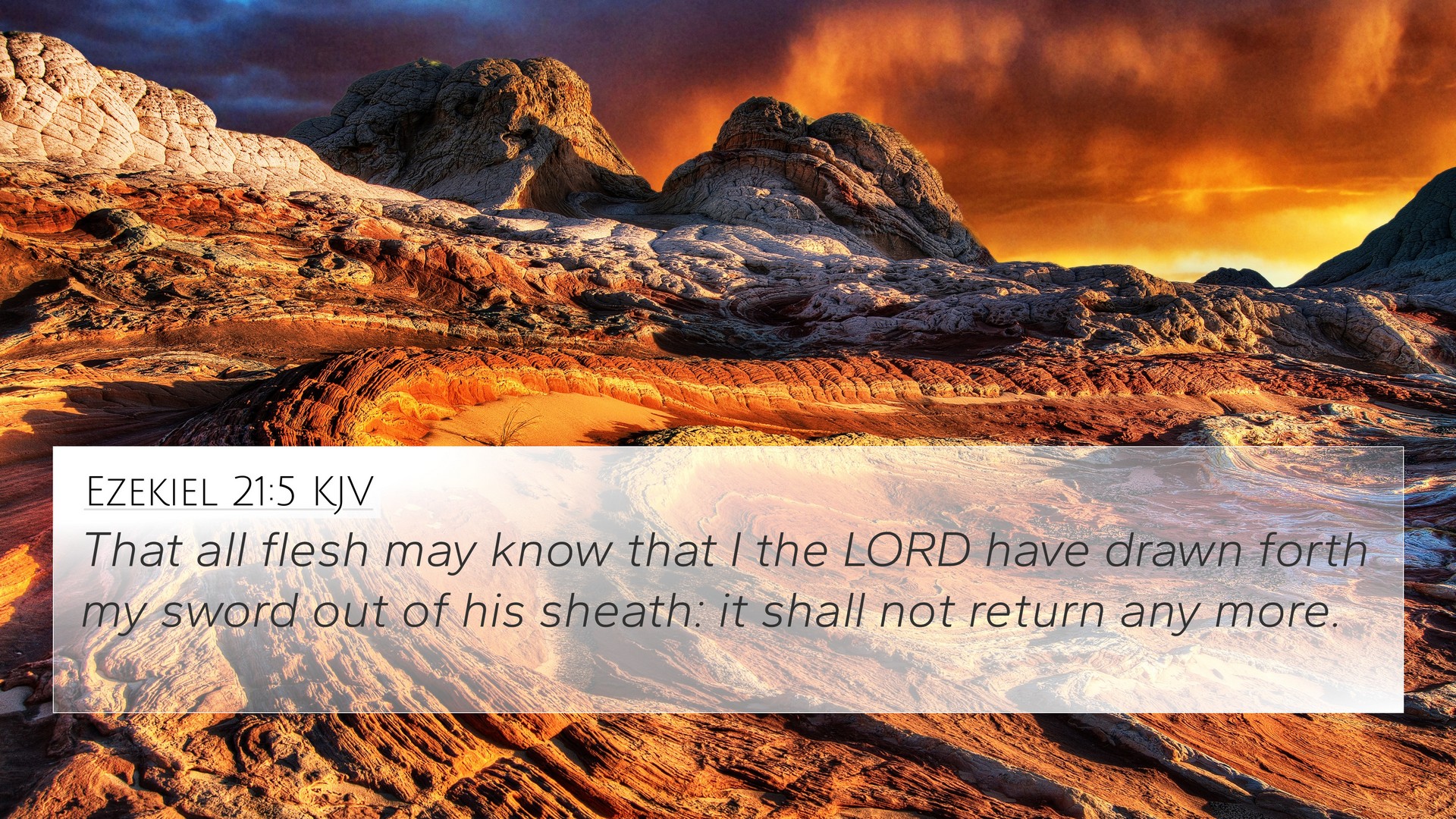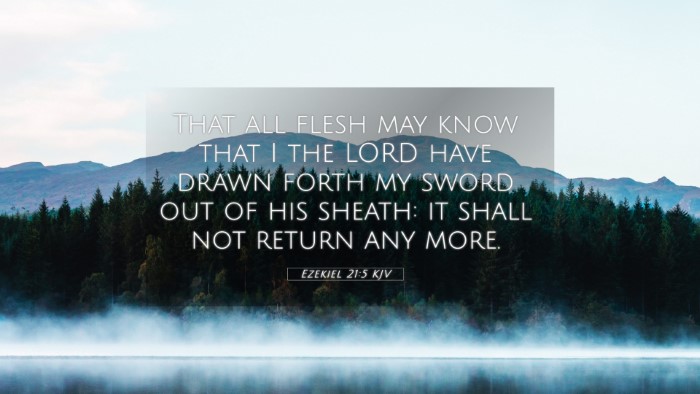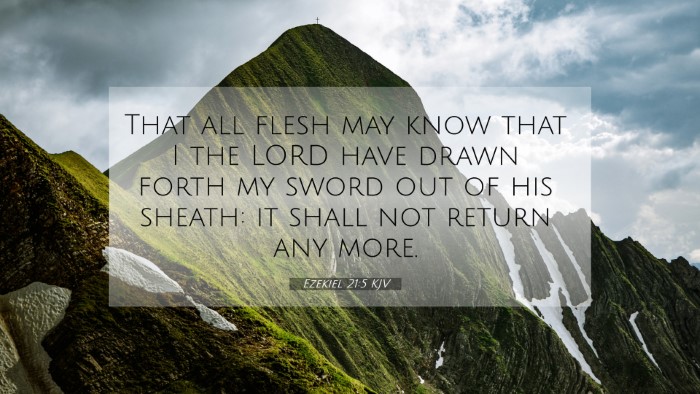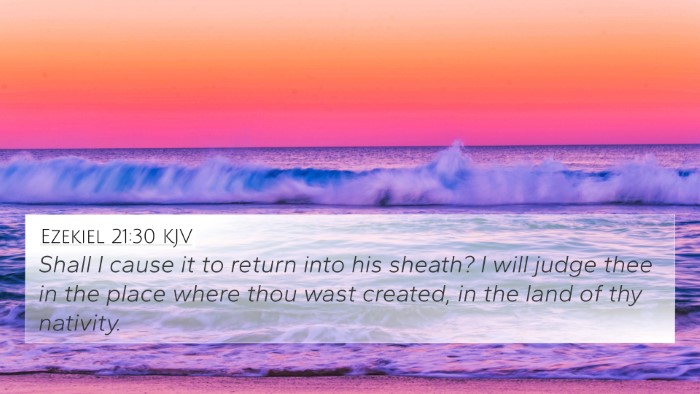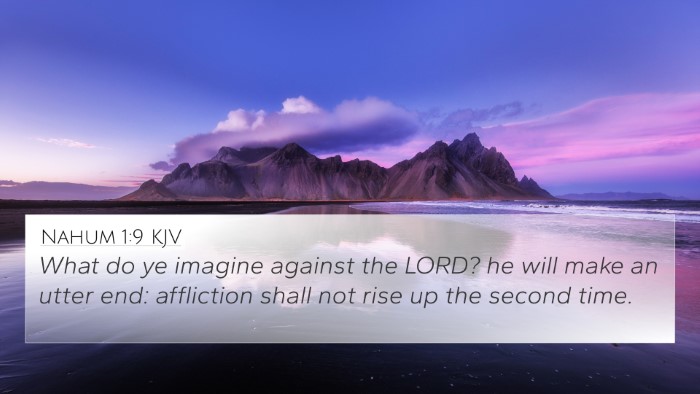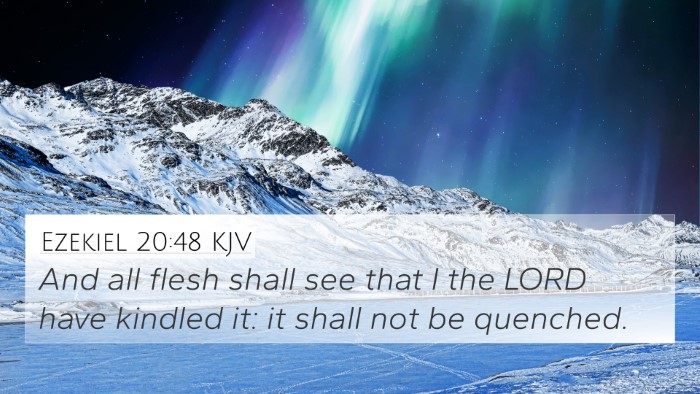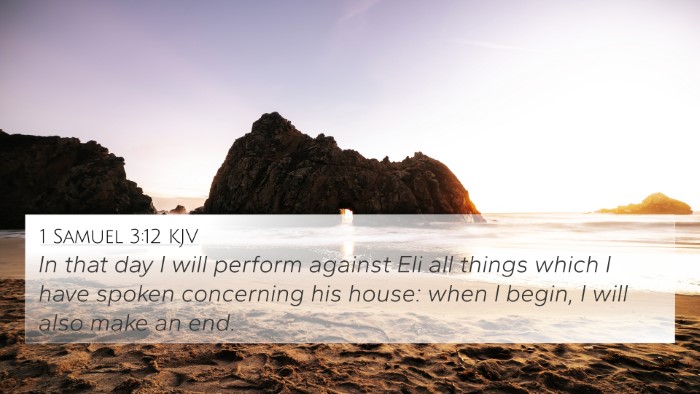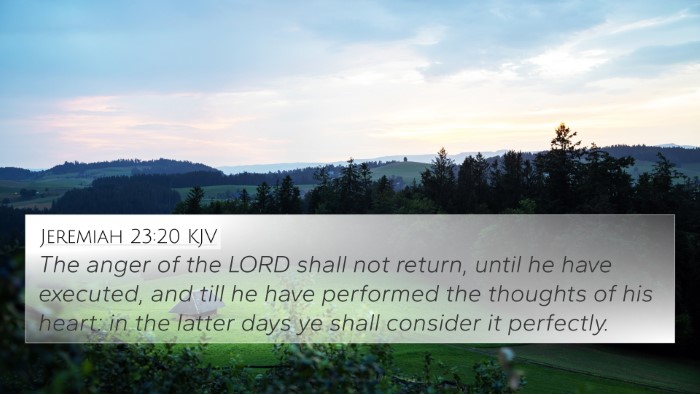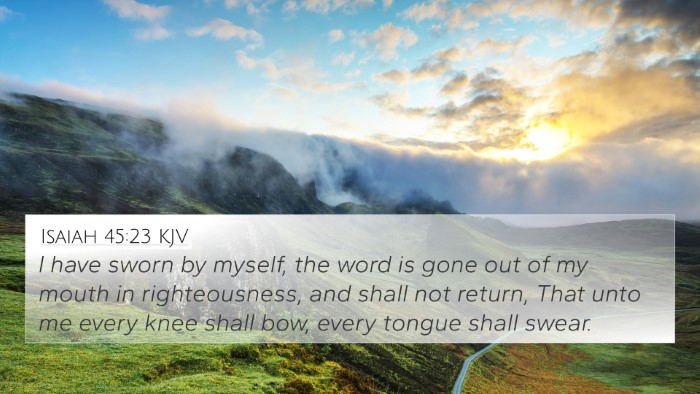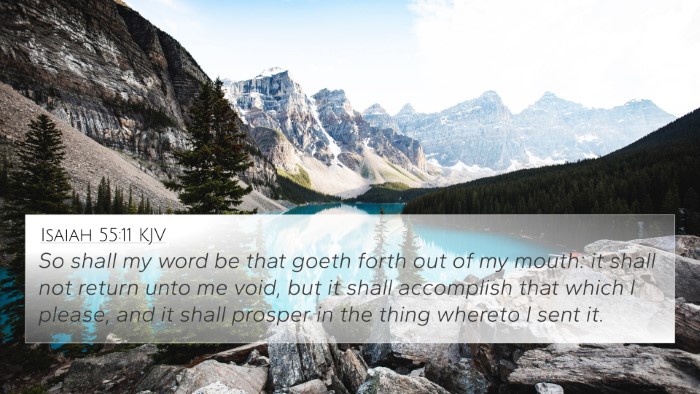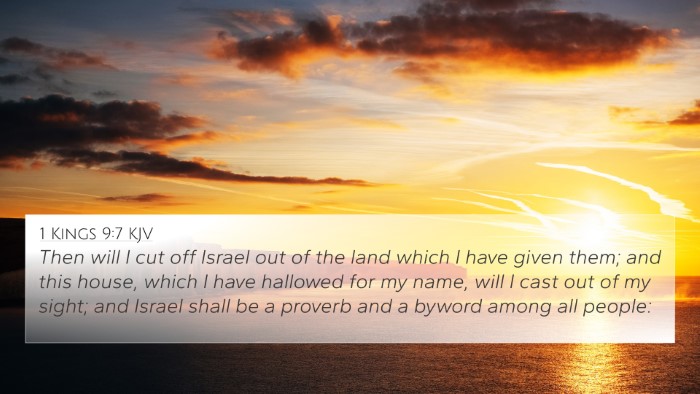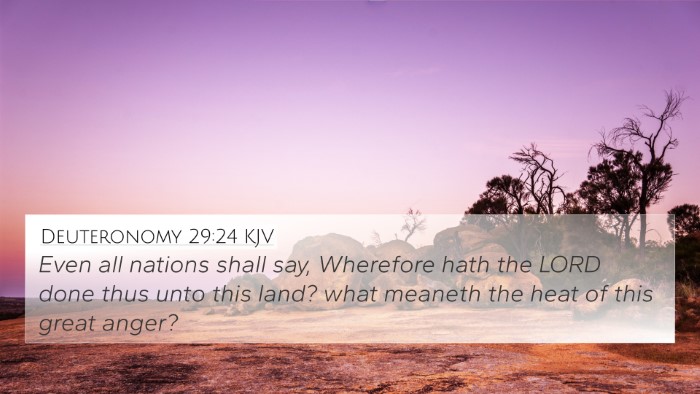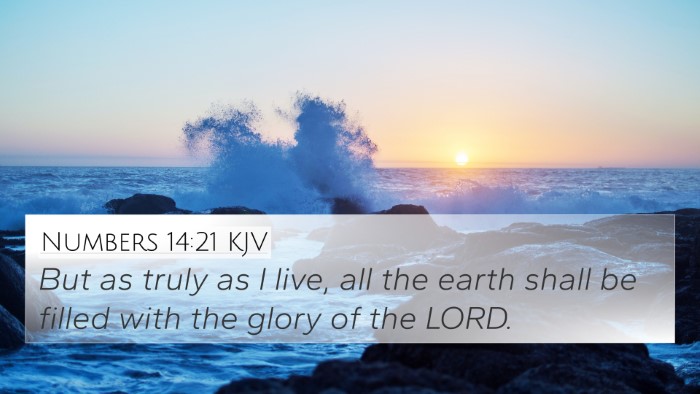Ezekiel 21:5 - Understanding the Verse
Ezekiel 21:5 states: "And all flesh shall know that I the LORD have drawn forth my sword out of his sheath: it shall not return any more."
This verse highlights the certainty of God's judgment and the proclamation of His power. Through this, we can discern several theological themes and connections to other scriptural texts.
Summary of Insights from Public Domain Commentaries
Matthew Henry’s Commentary
Matthew Henry emphasizes the impending judgment expressed through the imagery of a sword. The act of drawing the sword signifies action; it is a warning to the nation of Israel of the consequences of their actions. Henry notes that this judgment is irrevocable—once God has taken action, it will not be reversed until it achieves its divine purpose.
Albert Barnes' Notes
Albert Barnes discusses the metaphor of the sword as a symbol of God’s wrath. He elaborates that the 'flesh' in this context refers to all humanity recognizing the authority and power of God. This verse serves as a reminder that God's judgments are not hidden; they are evident to all and signify a clear message regarding divine accountability.
Adam Clarke’s Commentary
Adam Clarke draws attention to the concept of divine sovereignty inherent in this verse. He asserts that the act of God drawing His sword represents a decisive moment in history. Clarke stresses that the language here should invoke a sense of awe and fear, as it signifies both a warning and a finality to God's dealings with mankind.
Thematic Connections
Ezekiel 21:5 connects with numerous themes in scripture, emphasizing divine judgment, accountability, and sovereignty. The following biblical cross-references allow for a deeper exploration of these themes:
- Isaiah 34:5-6: Describes God's sword being filled with blood, illustrating judgment against the nations.
- Jeremiah 47:6: Talks about the sword of the Lord, emphasizing its relentless nature.
- Revelation 19:15: Portrays the Lamb of God wielding a sword, symbolizing ultimate justice.
- Hebrews 4:12: Compares the word of God to a two-edged sword that discerns intent.
- Ezekiel 30:24: Addresses God strengthening the arm of the king, revealing divine support in judgment.
- Ezekiel 11:10: Speaks of God executing judgment, with imagery that reflects the irrevocable nature of His decisions.
- Psalm 7:12-13: Depicts God as a righteous judge who prepares instruments of judgment.
Exploring Cross-References
Understanding how Ezekiel 21:5 interacts with other scriptures enhances our biblical literacy and provides a framework for interpretative analysis. By utilizing tools for cross-referencing, one can gain a comprehensive overview of related verses and themes. For instance:
- Identifying connections between Old and New Testament scriptures enriches our grasp of God's unfolding narrative.
- Diving into a comparative study of the Gospels reveals similar messages about divine authority and judgment.
- Examining how this verse interacts with prophets like Jeremiah can highlight the consistency of God’s message throughout scripture.
Conclusion
Ezekiel 21:5 serves as a critical reminder of God's ultimate authority and the unavoidable nature of His judgment. By tracing its connections through cross-referencing and thematic analysis, believers can appreciate the depth of biblical truth and the consistency of God’s character as portrayed throughout the scriptures. The knowledge gained through these connections not only aids in personal study but is invaluable in sermon preparation and teaching.
You Might Ask
What verses are related to Ezekiel 21:5? The insights listed above highlight several verses that resonate with the themes of judgment and accountability.
How do Ezekiel 21:5 and Isaiah 34:5 connect? Both verses depict the fierce nature of God’s judgment and the certainty of His actions in the world.
Find cross-references for Ezekiel 21:5: Using a Bible concordance or a cross-reference guide can aid in discovering further connections.
